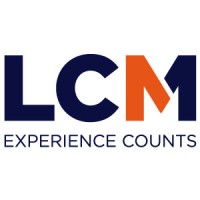CAT Trial Underway for Shipping Cartel Class Action Funded by Woodsford
As LFJ reported yesterday, the start of 2025 has seen a flurry of activity at the Competition Appeal Tribunal (CAT), with two major class actions backed by litigation funders going to trial this week.
An article in City AM covers the start of the trial in the Car Delivery Charges class action at the CAT marking the first time that a follow-on cartel proceedings has gone to trial in the UK. The claim, which began in 2020, focuses on allegations that five shipping companies acted as a cartel between October 2006 and September 2012, raising the cost of shipping new vehicles to the UK and Europe. The trial against the two remaining defendants, MOL and NYK, follows the CAT’s approval of a settlement with CSAV in December 2023, and separate settlements with WWL/EUKOR and “K” Line in December 2024.
Mark McLaren, a former executive at consumer group Which?, is acting as the class representative on behalf of UK consumers and businesses who were overcharged for vehicle purchases. Scott+Scott has been instructed as the solicitors for the claim, with Woodsford providing the litigation funding for the class action. The counsel team for the trial includes Sarah Ford KC and Sarah O’Keefe from Brick Court Chambers, and Nicholas Gibson from Matrix Chambers.
Belinda Hollway, lead partner at Scott+Scott, emphasised that “this trial marks a very significant milestone in the case and is the culmination of five years of hard work and dedication.” Holloway also highlighted the CAT’s approval of the previous settlements in the case, which she argued “demonstrates the power of the UK opt out regime to secure compensation for class members”.
In a post on LinkedIn, Woodsford said that they are “proud to be supporting Mark McLaren in the landmark Car Delivery Charges class action trial”, and that they “remain committed to the consumers affected by the cartel with settlements, in respect of 3 out of the 5 cartelists, in excess of £38m having already been reached in the course of 2023 and 2024.”
The trial is provisionally expected to last for ten weeks, with the claimants seeking to achieve around £100 million in compensation from the two remaining defendants.
More information about the class action can be found on the Car Delivery Charges website.
Past orders, judgments, transcripts and notices in Mark McLaren Class Representative Limited v MOL (Europe Africa) Ltd and Others can be found on the CAT’s website.





















